Animals
-
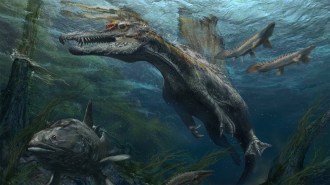 Paleontology
PaleontologyCould Spinosaurus swim? The fierce dinosaur ignites debate
Researchers are still divided about whether Spinosaurus was a swimmer or a wader. What’s clear is that confirming the first swimming dinosaur would be a game-changer.
-
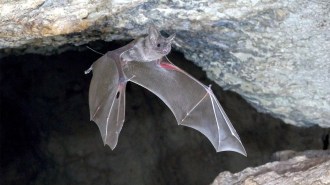 Animals
AnimalsBats wearing tiny mics reveal how the fliers avoid rush hour collisions
As thousands of bats launch nightly hunting, the cacophony of a dense crowd should stymie echolocation, a so-called “cocktail party nightmare.”
By Susan Milius -
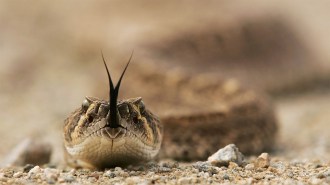 Animals
AnimalsSnakes are often the villains. A new book gives them a fair shake
From demon to danger noodle, human ideas about snakes can be as contradictory as the creatures themselves. In Slither, Stephen S. Hall challenges our serpent stereotypes.
-
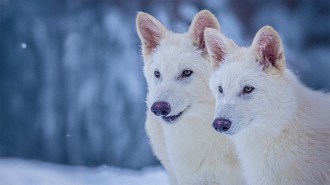 Animals
AnimalsThe story of dire wolves goes beyond de-extinction
Some question whether the pups are really dire wolves, or just genetically tweaked gray wolves. But the technology could be used to help at-risk animals.
By Meghan Rosen -
 Anthropology
AnthropologyRare books covered with seal skin hint at a medieval trade network
The furry seal skins may have made their way to French monasteries from as far away as Greenland.
By Alex Viveros -
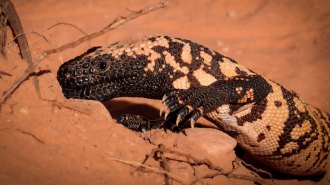 Life
LifeGila monsters may struggle to survive climate change
The Mojave Desert may lose and gain suitable habitat for Gila monsters. But the unathletic reptiles might be mostly stuck in the waning oases.
By Jake Buehler -
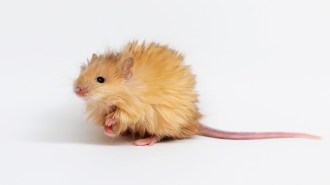 Genetics
Genetics‘Woolly mice’ were just a start. De-extinction still faces many hurdles
Scientists created transgenic mice with woolly mammoth–like traits. But does it really bring us closer to bringing back woolly mammoths?
By Jason Bittel -
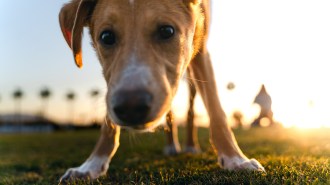 Animals
AnimalsYou might be reading your dog’s moods wrong
A dog's physical cues often take a back seat to environmental ones, skewing humans' perceptions, a small study suggests.
-
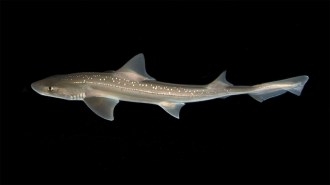 Animals
AnimalsIs that shark ticking? In a first, a shark is recorded making noise
The ocean can be a symphony of fish grunts, hums and growls. Now add tooth-clacking sharks to the score.
By Susan Milius -
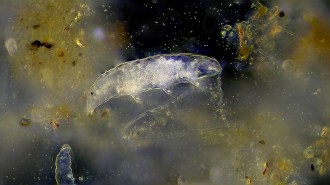 Animals
AnimalsA tardigrade protein helped reduce radiation damage in mice
Mouse cells tweaked to produce the tardigrade protein incurred less DNA damage than unaltered cells — hinting at a new tool for cancer patient care.
-
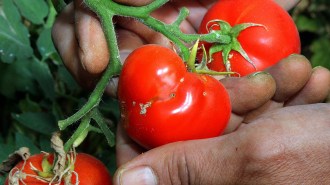 Agriculture
AgricultureHow silicon turns tomato plants into mean, green, pest-killing machines
Treated plants fight pests without the need for toxic pesticides, oozing a "larval toffee" that stunts tomato pinworms’ growth and attracts predators.
-
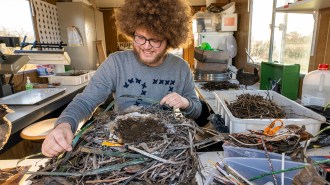 Animals
AnimalsPlastic ‘fossils’ help scientists reconstruct the history of bird nests
Plastic waste has let common coots reuse nests year after year. Scientists have now used the trash layers to date how old nests are.